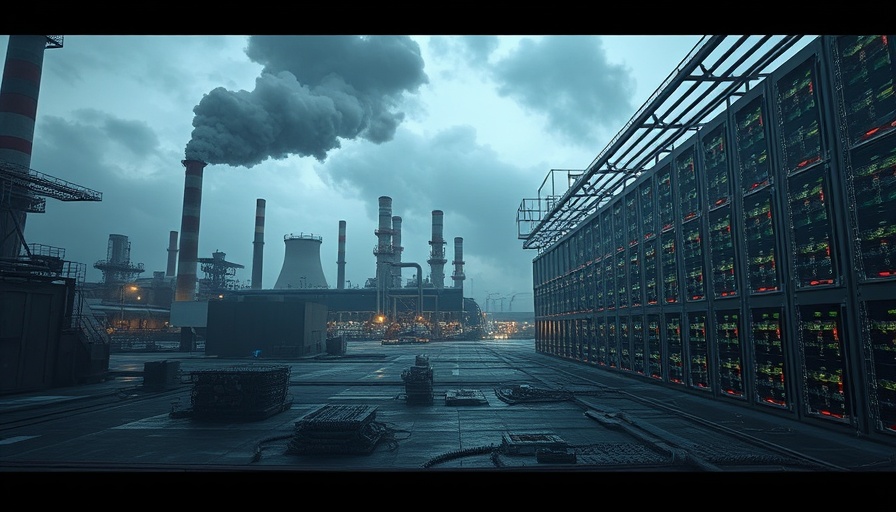
Coal's Decline: From Black Gold to Dust
The recent implosion of a substantial coal plant has set the stage for a significant shift in energy and technological landscapes. This transformation marks not just the end of an era for coal but also the rise of artificial intelligence (AI) data centers as major players in the energy consumption arena.
What Does This Shift Mean for Local Economies?
As local economies pivot from coal-dependent jobs to tech-centered opportunities, residents are left navigating a complex transition. The explosive demolition of the coal plant symbolizes both loss and potential gain. While jobs in coal industries diminish, new roles in data management and tech support are emerging, requiring different skill sets. This shift represents a fundamental economic alteration, prompting local educational institutions to reassess their training programs to prepare residents for the jobs of tomorrow.
The Environmental Implications of AI
Interestingly, the rise of AI data centers does not come without its own environmental concerns. AI technology demands colossal energy resources, raising questions about sustainability and the carbon footprint of our digital future. Experts highlight that while moving away from fossil fuels like coal is beneficial, the energy consumption of a single AI data center can be equal to that of thousands of homes. This presents a dual challenge: finding clean energy sources that can accommodate the growing demands of AI while mitigating the impacts of such expansion on the environment.
The Future: Balancing Tech Growth and Sustainability
Looking ahead, communities must find a fine balance between embracing innovative technology and ensuring environmental stewardship. The transition to AI-driven industries provides an opportunity to pioneer the use of renewable energy sources.
Diverse Perspectives: Voices from the Community
Local stakeholders offer a range of views on this transition. While some express optimism for the new economic opportunities, others share concerns about job security and the environmental impact of increased energy demands. Engaging community leaders and residents in dialogue will be essential in navigating these challenges, finding solutions that prioritize both economic viability and sustainability.
Challenging Common Misconceptions
One misconception that often arises in discussions about transitioning from coal to data centers is that digital resources are inherently eco-friendly. In reality, the hidden costs of powering vast data networks can often outweigh the perceived benefits of cleaner extraction processes. Educating the public about these realities is essential for informed decision-making.
Preparing for Change: Educating Tomorrow's Workforce
For this transformation to be successful, education will play a critical role. Community colleges and vocational programs have begun adapting their curriculums to include essential skills for AI and data management. This investment in education is necessary not only for individual empowerment but also for economic resilience in the face of rapidly changing job landscapes.
The Takeaway: Moving Forward Together
The implosion of the coal plant signals a significant turning point. As communities embrace the technology of AI, it is vital that the transition is equitable — ensuring jobs for current workers while developing innovative educational programs for future generations. Through collaboration and dialogue, we can harness the power of technology for economic and environmental benefits alike.
 Add Row
Add Row 
 Add
Add 


 Add Row
Add Row 
 Add
Add
Write A Comment